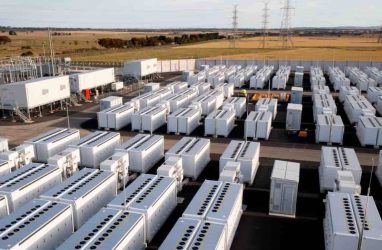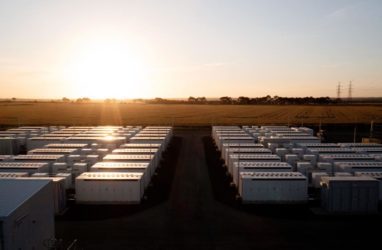Feed aggregator
Life in ocean’s twilight zone ‘could disappear’ amid warming seas
Less food is falling to dimly lit waters, home to specially adapted marine life – but emissions cuts would stem decline
Life in the ocean’s twilight zone is expected to face dramatic declines and even extinction as seas warm and less food reaches the dimly lit waters, a study has found.
The twilight zone lies between 200 metres and 1,000 metres below the surface and is home to a variety of organisms and animals, including specially adapted fish such as lantern sharks and kite fin sharks, which have huge eyes and glowing, bio-luminescent skin.
Continue reading...Steel group releases global standard for measuring GHG emissions, adopting 1.5C ‘glidepath’
Guangdong releases guidelines on carbon allowance-secured loans
Singapore, Cambodia sign Article 6 carbon trading MoU
Analysts urge governments, businesses to put nature-based solutions at heart of fight against water crisis
German trading platform launches RFQ-based EU carbon marketplace
Why green ammonia may not be that green
NZ Market: NZU price slips following climate commission advice
What is an El Niño? And how will it affect Australia? – video
Climate models are indicating Australia may be hit by a 'super El Niño' before the end of the year. After three years of La Niña and above-average rainfall, Australia is now looking at a hot, dry El Niño period. The last extreme El Niño in 2016 helped push global temperatures to the highest on record, underpinned by human-caused global heating that sparked floods, droughts and disease outbreaks. But what exactly is an El Niño and how do they work? Matilda Boseley explains
Climate models warn of possible ‘super El Niño’ before end of year
The next El Niño: when is it coming and how strong might this one be for Australia?
Report calls for national standards on building energy efficiency, electrification
 Property Council of Australia and Green Building Council set out policy recommendations to get Australia’s buildings net-zero ready, and save consumers money.
Property Council of Australia and Green Building Council set out policy recommendations to get Australia’s buildings net-zero ready, and save consumers money.
The post Report calls for national standards on building energy efficiency, electrification appeared first on RenewEconomy.
NSW chooses preferred network operator for first renewable energy zone
 NSW has chosen its preferred consortium to build and operate the state's first renewable energy zone, which might come as a surprise to the local DNSP.
NSW has chosen its preferred consortium to build and operate the state's first renewable energy zone, which might come as a surprise to the local DNSP.
The post NSW chooses preferred network operator for first renewable energy zone appeared first on RenewEconomy.
Human-driven climate crisis fuelling Horn of Africa drought – study
Region is suffering its worst drought in 40 years after five consecutive years of below-average rainfall
The devastating drought in the Horn of Africa would not have happened without the human-made impact of the climate crisis, new science has shown.
The drought has affected about 50 million people in the Horn of Africa directly and another 100 million in the wider area. About 20 million people are at risk of acute food insecurity and potentially famine.
Continue reading...BP faces rebel shareholders over new climate goals
“Change of philosophy:” Wind, solar and battery projects get bigger and more complex
 Australia's most successful renewable and storage developer says projects getting more complex, and new technologies require change in "philosophy" about way grid is managed.
Australia's most successful renewable and storage developer says projects getting more complex, and new technologies require change in "philosophy" about way grid is managed.
The post “Change of philosophy:” Wind, solar and battery projects get bigger and more complex appeared first on RenewEconomy.
South Korea targets clean hydrogen standards in place by 2024
Victoria’s new public energy utility begins search for first renewables and storage deal
 Victoria launches market search for large-scale renewables generation and/or storage project to kickstart its revival of the State Electricity Commission.
Victoria launches market search for large-scale renewables generation and/or storage project to kickstart its revival of the State Electricity Commission.
The post Victoria’s new public energy utility begins search for first renewables and storage deal appeared first on RenewEconomy.
Energy Insiders Podcast: In love with wind, solar and batteries
 Louis de Sambucy, the head of Neoen in Australia, on why wind, solar and battery projects are getting bigger and more complex.
Louis de Sambucy, the head of Neoen in Australia, on why wind, solar and battery projects are getting bigger and more complex.
The post Energy Insiders Podcast: In love with wind, solar and batteries appeared first on RenewEconomy.
The Driven Podcast: Australia’s most successful electric truck company
 SEA Electric’s Tony Fairweather on electric trucks. Plus: Battery breakthroughs, Tesla’s big new game plan, and Australia’s EV strategy.
SEA Electric’s Tony Fairweather on electric trucks. Plus: Battery breakthroughs, Tesla’s big new game plan, and Australia’s EV strategy.
The post The Driven Podcast: Australia’s most successful electric truck company appeared first on RenewEconomy.



